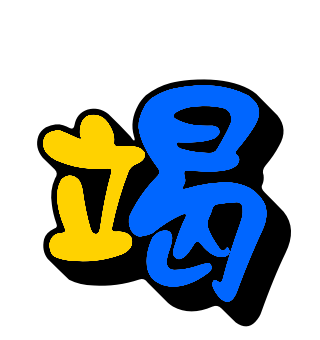 We all have some characters that refuse to stick and that we keep forgetting over and over. The best way of learning tricky characters in Chinese is to deal with them decisively. For more about how to do that, check the first article in this series.
We all have some characters that refuse to stick and that we keep forgetting over and over. The best way of learning tricky characters in Chinese is to deal with them decisively. For more about how to do that, check the first article in this series.The most difficult Chinese characters
In this article, I will go through some of the most difficult characters. This difficulty is not based on my opinion, it’s based on statistics fetched from our database. We know which characters Skritter users get wrong most often.
For each character, I will explain:
- Character frequency and basic definition
- Pronunciation
- Character composition and formation
- The component parts and their functions
- Common words and/or phrases for context
- Why the character might be difficult
Previous articles:
19. 颇 (pō) “quite, rather; oblique” (frequency rank: ~1300)
This is another phonetic-semantic compound. On the left, there’s 皮, which is the phonetic component here . On the right is 页, which in modern Mandarin means “page”, but which original meaning is “head”.
- 影响颇大 (a rather big influence)
- 颇感兴趣 (quite interested)
I’m not sure why this character is so hard to learn, but possibly because it often appears alone and that you can’t just add a bunch of words it appears in and learn them instead.
This is a phonetic-semantic compound with the left part giving the meaning and the right part the sound. We have 立 “to stand” and 曷, which isn’t really used in modern Chinese. but has numerous functions in classical Chinese, including how/why/what/where. It’s pronounced hé.
Some common word words with 竭:
- 竭力 (jiélì) “to do one’s outmost”
- 竭尽全力 (jiéjìnquánlì) “to spare no effort”
21. 允 (yǔn) “allow; permit” (frequency rank: ~1600)
The etymology of this fellow is a bit trickier. It appears to have been a pictograph to start with (of a mouth accepting, but I’m not sure how that’s conveyed in a picture). However, the parts in the character today are 厶 “selfish” and 儿, a variant of 人, “human”, but which normally means “child”, none of which are used independently to mean that in modern Mandarin. Some dictionaries also give this as a phonetic-semantic component, in which case the 儿 is the phonetic.
允 is common almost entirely because it appears in one very common word, 允许 (yǔnxǔ) “to allow; to permit”.
It’s easy to see why this character is hard. It has components that don’t really mean what they used to in Mandarin and that, even if they did, still don’t help much with remembering either pronunciation and meaning. Personally, I also find these characters with few strokes and few or no discernible components the hardest.
A decent mnemonic for this comes from Skritter user :
It is only fair to allow youngsters a chance to be private
—
That’s it for today! Do you find these characters difficult? Have you developed good mnemonics for than? Or do you have a question? Leave a comment!
